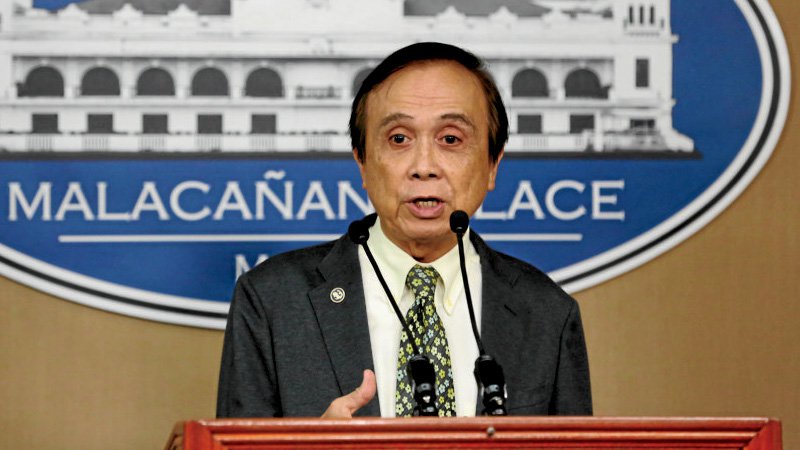
NEDA Director Ernesto Pernia. INQUIRER FILE PHOTO/JOAN BONDOC
Economic managers would likely maintain the growth targets when they meet to review the macroeconomic and fiscal programs later this month, Socioeconomic Planning Secretary Ernesto M. Pernia said Friday.
“The medium-term growth targets remain unchanged,” Pernia, who also heads state planning agency National Economic and Development Authority, said in a text message when asked about the upcoming interagency Development Budget Coordination Committee (DBCC) meeting.
Neda Undersecretary Rosemarie G. Edillon said the DBCC’s executive technical board will meet Monday to review the growth targets.
“I do not expect any adjustment in the macroeconomic parameters,” Budget Secretary Benjamin E. Diokno told the Inquirer last week, disclosing that the Cabinet-level DBCC will meet sometime in mid-June.
The Duterte administration targets 6.5-7.5 percent gross domestic product (GDP) growth this year, even as the first-quarter figure fell below expectations at 6.4 percent. Annual GDP growth in the next five years was programmed at 7-8 percent.
As for the proposed P3.84-trillion national budget for 2018, Diokno said the Department of Budget and Management was already finalizing the tier two of the budget, referring to new programs as well as expansion of existing projects.
Last December, the DBCC said the record 2018 budget, up 14.6 percent from this year’s P3.35-trillion budget, will be contingent on Congress’ approval of the proposed first tax reform package, aimed at easing the burden on personal income earners while slapping new or additional taxes on consumption.
Diokno said he is optimistic that the first package of the Duterte administration’s comprehensive tax reform program will be passed in Congress before yearend.
But while Congress tackles the tax reform package that will raise more revenues to fund massive infrastructure projects, “we will be more careful in prioritizing government programs and projects,” Diokno said.
“However, I do not expect that the DBCC will drastically change the medium-term fiscal program as a result of any delay in the passage of the tax reform program,” according to Diokno.
The latest Department of Finance computations showed that lowering the personal income tax rates coupled with reduction in donor and estate taxes would result in foregone revenues of P140.1 billion when implemented in 2018.
The value-added tax base expansion as well as higher automobile and petroleum excise taxes, meanwhile, would bring about a revenue gain of P187.7 billion next year. Complementary measures, including the P10 excise tax on sugar-sweetened drinks, would add P65.8 billion in revenues, on top of a P43.8-billion gain from tax administration measures.
Last Wednesday, the Lower House approved House Bill No. 5636 containing the first tax reform package of the Duterte administration ahead of Congress’ sine die adjournment. JPV